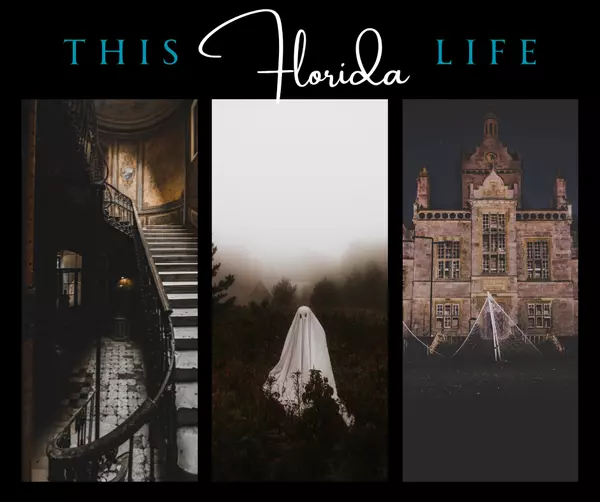The History of Jacksonville and How It Shapes Real Estate Today

Jacksonville, Florida, has a rich and dynamic history that continues to shape its real estate market. From its early days as a hub for trade and industry to its growth into one of Florida’s largest cities, Jacksonville’s past is deeply intertwined with the development of its neighborhoods and real estate trends. Here’s a look at Jacksonville’s history and how it impacts its modern real estate market.
Early Beginnings and Riverfront Development
Jacksonville’s location along the St. Johns River made it a vital area for trade and transportation even before its incorporation in 1832. The riverfront became the focal point for commerce, with ports and shipping driving economic growth.
Impact on Real Estate:
- Riverfront properties remain highly desirable, offering scenic views and access to boating and recreational activities.
- Downtown Jacksonville’s revitalization efforts have focused on its historic riverfront, boosting interest in urban living.
The Growth of Industry and Tourism
In the late 19th and early 20th centuries, Jacksonville became a hub for the timber, cigar, and shipping industries. Its mild winters also attracted tourists, particularly from the North, making it a key destination for seasonal visitors.
Impact on Real Estate:
- Historic neighborhoods like Riverside, Springfield, and Avondale developed during this era, featuring charming architecture that attracts buyers today.
- Tourism laid the foundation for beachside communities like Atlantic Beach and Neptune Beach, where vacation homes evolved into sought-after permanent residences.
The Great Fire of 1901
One of the most significant events in Jacksonville’s history was the Great Fire of 1901, which destroyed much of the downtown area. The city rebuilt with modern designs and infrastructure, setting the stage for future growth.
Impact on Real Estate:
- The fire spurred the development of neighborhoods beyond the urban core, leading to the establishment of suburban areas.
- Many historic buildings that survived or were rebuilt remain architectural landmarks, increasing the value of properties in these areas.
Military Influence During the 20th Century
With the establishment of Naval Station Mayport and other military facilities, Jacksonville became a key military hub. The influx of military personnel and their families significantly impacted housing demand.
Impact on Real Estate:
- Proximity to military bases drives demand for affordable housing in areas like Arlington and Southside.
- Military-friendly neighborhoods continue to attract buyers and renters, thanks to VA loan options and community resources.
The Civil Rights Era and Urban Transformation
Jacksonville played a significant role in the Civil Rights Movement, particularly in the downtown area, where demonstrations highlighted social and economic disparities. Over time, urban renewal projects sought to revitalize these areas.
Impact on Real Estate:
- Efforts to revitalize Downtown Jacksonville have led to increased interest in mixed-use developments and urban living.
- Historic African-American neighborhoods, such as LaVilla, are undergoing redevelopment to preserve cultural heritage while attracting new investment.
The Emergence of Beach and Suburban Living
As the city expanded during the mid-20th century, suburban living became a prominent trend. Developments like Mandarin and Julington Creek offered families larger homes and more green space. At the same time, the beaches gained popularity for their relaxed lifestyle and scenic beauty.
Impact on Real Estate:
- Suburban neighborhoods remain popular among families seeking excellent schools and spacious properties.
- Beach communities, including Ponte Vedra and Jacksonville Beach, have become premium markets for both permanent residents and second-home buyers.
Modern Revitalization and Growth
Today, Jacksonville is one of the fastest-growing cities in the United States, attracting new residents with its affordability, job opportunities, and quality of life. Efforts to revitalize historic areas and invest in infrastructure are transforming the city.
Impact on Real Estate:
- Neighborhoods like Springfield and Riverside are seeing a resurgence in popularity, with historic homes being restored and new businesses opening.
- Downtown revitalization projects, such as the redevelopment of the Riverfront Plaza, are boosting demand for urban real estate.
- Master-planned communities like Nocatee and eTown reflect the city’s focus on sustainable, modern living, catering to diverse buyer needs.
How Jacksonville’s History Shapes Real Estate Today
- Historic Charm: Jacksonville’s historic neighborhoods continue to draw buyers looking for unique architecture and a connection to the city’s past.
- Waterfront Appeal: The St. Johns River and Atlantic coastline remain key features of the real estate market, driving demand for waterfront properties.
- Suburban Expansion: Decades of suburban growth have created a diverse range of housing options, from family-friendly communities to luxury estates.
- Urban Renewal: Investment in downtown and older neighborhoods highlights a commitment to preserving Jacksonville’s heritage while embracing modern living.
Jacksonville’s rich history and cultural evolution have left a lasting imprint on its real estate market. From historic districts to waterfront communities and thriving suburbs, the city’s diverse offerings cater to every type of buyer. Whether you’re looking for a home steeped in history or a modern development with all the amenities, Jacksonville’s real estate market offers something for everyone. Ready to explore what Jacksonville has to offer? Let’s find the perfect neighborhood for your lifestyle and goals!
Recent Posts











